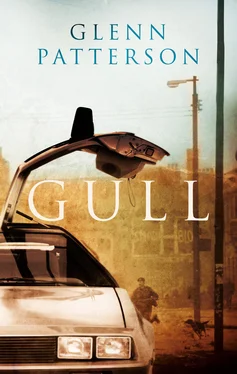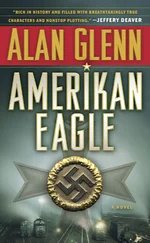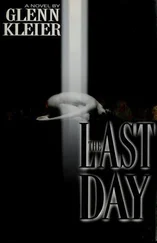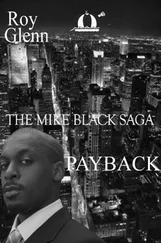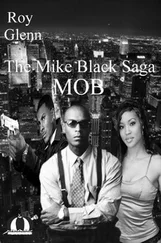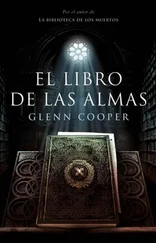‘Oh, TC,’ she said, ‘I’m sorry.’
TC blinked. His cheeks bulged and his lips twitched. God, he wasn’t really going to be sick, was he? The words came out in a rush. ‘It’s not mine, Liz, it’s yours.’
*
She had no idea who was leading it, but there was a movement — a swell — in the direction of the administration block (it was becoming traditional with them), those with and those without letters caught up in it alike. The managers (as was traditional with them) had got wind of their approach. They were waiting in a line, Randall one of the middle three with Don Lander and Myron Stylianides. He looked as bad as TC, near, but she thought in his case it was maybe fear. There was no Gardiner from wages, with his inexhaustible supply of pens, to call on this time. He had every right to be scared.
Without warning a hail of objects flew through the air from the front of the crowd. The managers to a man flinched or outright ducked before they realised that they were threatened by nothing more lethal than letters of dismissal, balled up.
There was a sound then, long, drawn-out — yeeeee-ow — composed of equal parts contempt and delight at their display of cowardice.
If they hadn’t sensed it already her fellow workers knew for certain now who occupied the moral high ground.
‘You told us this was different.’ Liz recognised Anto’s voice, somewhere to her left. ‘We’re no better off than if we’d been standing on the street corner waiting on the ganger to pick us.’
Don Lander tried several times to speak, but was shouted down. Randall though did manage eventually to make himself heard.
‘Give Mr Lander a chance,’ he said. ‘He did everything he could the past few weeks to make sure this didn’t happen. He will do everything he can in the next few to make sure these lay-offs are only temporary…’
He stopped. It was a moment before Liz realised the reason was that she had her hand up — out in fact, arm rigid, fingers splayed. ‘Seriously, how are we expected to trust anything you say?’
A round of applause at this.
He held her eye. She held his longer.
‘I am — all of us here are — part of this too, you know,’ he said, to anyone it seemed but her.
*
Randall was half expecting someone to shout out and ask if they were all in this together, then which of the managers had got redundancy letters today. No sooner had he finished speaking, though, than the workers seemed to arrive at a collective and unspoken decision to turn their backs on him, on Lander, Stylianides, the lot of them, and walk the other way.
*
The television cameras were waiting at the gates, reporters jamming microphones under the noses of workers as they walked out, trying to get a comment. Liz dipped her head as she passed, remembering how she had watched John DeLorean those years ago on that knackered TV while serving up the dinner: ‘two thousand jobs in eighteen months…’
What she was doing now, she knew, letting hair fall across her face like that, she was hiding from herself.
She caught a bus the whole way into town and for reasons that made no sense even to her killed the time until she normally finished work, the last hour of it in the Bodega on Callender Street, where she ordered, of all things, a schooner of sherry. Speciality of the house, the writing on the board above the bar said. It was special enough that she had another two before fighting with the security turnstile at the bottom of the street to reach the bus stop home. Fucking, fucking, useless thing.
She came into the house by the back door. Robert and the boys were in the living room, waiting on the Dinner Fairy. She must have swayed. Robert went to get up. She set the letter on the arm of his chair. ‘Don’t say a word, any of you,’ she warned and went straight up the stairs to her room, got into bed, shoes and all still on her, and pulled the covers right up over her head.
Only then did she give in and cry.
The week after the redundancies the news crews were back at the factory gates reporting that the remaining workforce had been put on a one-day week.
Liz recognised the hunted look in the eyes of the workers as they passed the cameras. All those carefully calculated HP plans; all those mortgages taken out. Those holidays destined to remain dreams.
*
DeLorean had not spoken to Randall directly in close on a month. He had not set foot in Belfast since the Christmas party. Roy Nesseth was now working out of 280 Park Avenue, in the office right next door to DeLorean’s own. It suggested to Randall a circling of the wagons. (Bill Haddad — if they did not feel embattled enough in there — had filed a suit for slander.) They were concentrating on preparing a portfolio to present to potential investors at the Greater New York Auto Show in mid February, was the word coming out from behind both doors: the right-hand drive, a sedan — the DMC-24 (twice the car that the sports car was?) — and even a model to compete for part of the four-billion-dollar off-road-vehicle market were all talked up; but the Auto Show came and went and no more investment was forthcoming.
He could have made life a hell of a lot easier for himself, DeLorean was caught on camera saying, if he had chosen to site his car plant anywhere in the world but Belfast. For every pound the British Exchequer had put in he reckoned he must have put in a pint of blood. The British Exchequer queried both the Math and the Tact, or want of it.
Cristina went on TV and broke down in tears. It wasn’t fair what people were saying about him. It wasn’t fair at all.
A couple of days later he was back in London again, with Tom Kimmerly this time, for a meeting with Prior, who brought with him Sir Kenneth Cork, a former Lord Mayor of London, and more pertinently one half of Cork Gully whose meat and drink was companies that had shed half their workforce and left the rest more out of work than in.
Prior came out afterwards and told the press what they had already guessed, DeLorean Motor Cars Limited was from this moment on officially in receivership. ‘Constructive receivership,’ DeLorean, coming out behind him, was keen to stress, ‘which means the receivers will work with us to find the finance we need to get through our present liquidity difficulty.’ His take, communicated to Belfast by telex, was that this was preferable to the other option put before him, which was to form a whole new company, entirely under Cork Gully’s directorship and taking control of distribution of the cars in the US. ‘We bend a little way to keep this guy from breaking us altogether.’
Oh, and, the telex went on to say, he will be in Dunmurry by the end of the day, to take the measure of the factory and its assets.
*
Sir Kenneth Cork’s nickname — the Great Liquidator — went ahead of him, as did his pedigree: father before him a liquidator, son beginning to make his way in the profession. So Randall was pleasantly surprised to see getting out of the chauffeur-driven car a grandfatherly-looking man a little dishevelled in dress, slack of neck, short of sight and almost entirely bereft of hair on top of his high-domed head.
He told Randall that when he got the call from Prior the day before he had been out on his boat: an Anderson 22, if that meant anything to Randall. Randall had to confess it didn’t. Sir Kenneth smiled a little vaguely. ‘I understood you were with the company when it had offices at Chris-Craft.’ The vague smile was a blind: he had done his homework. ‘Well, not to worry,’ he said, which was good of him.
He counted in that initial inspection five hundred cars, in various states of completion, in the factory and its surrounding lots. ‘That’s ten million dollars right there,’ he said then added wistfully, ‘or would be if I only had charge of the American distribution.’
Читать дальше
